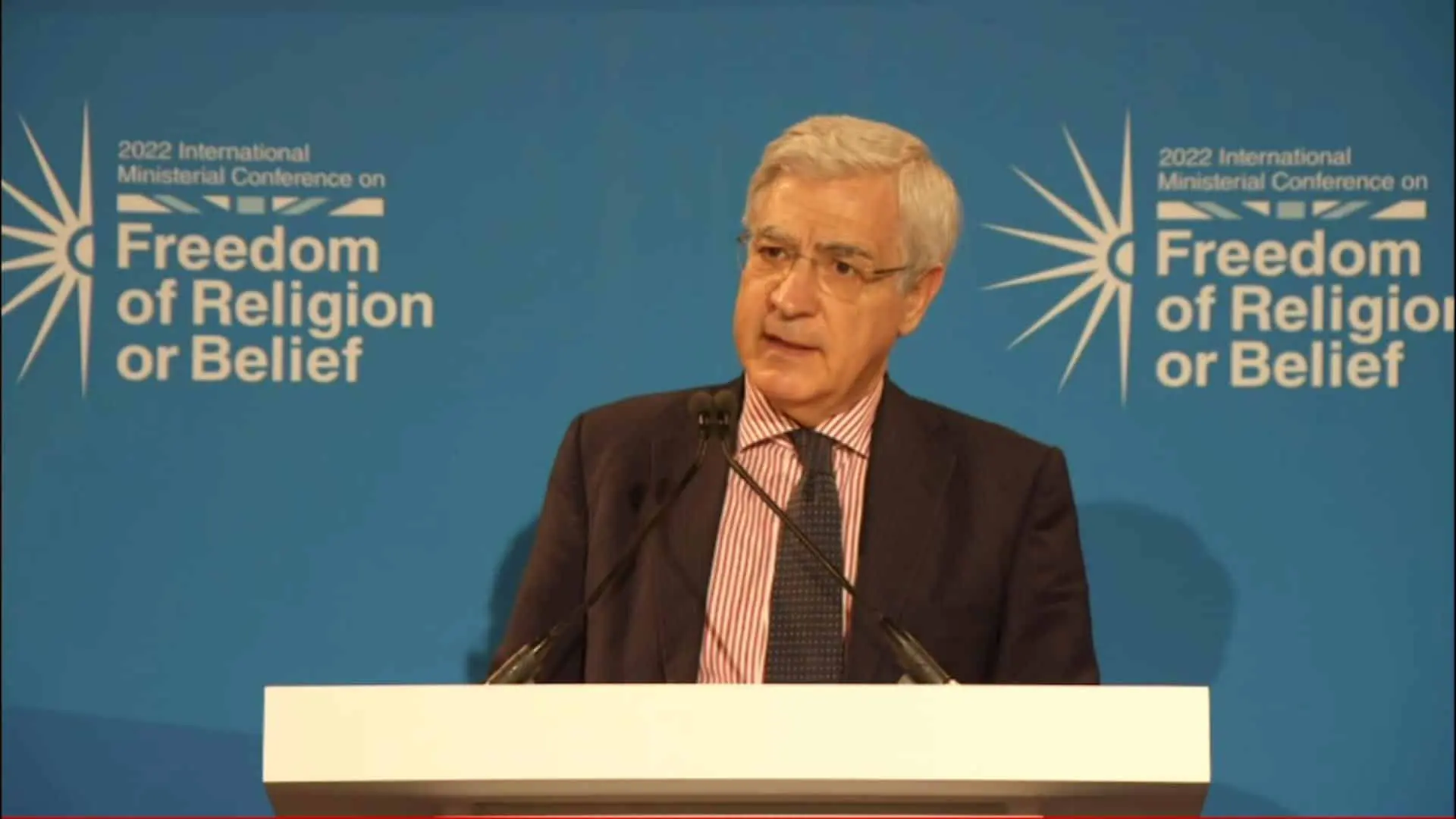Message from Italy’s Director General for Political and Security Affairs, H.E. Ambassador Pasquale Ferrara on 5th July 2022 to the International Ministerial on Freedom of Religion or Belief hosted by the Foreign and Commonwealth and Development Office of the United Kingdom.
Ferrara stressed that:
[FoRB] not only a moral or legal obligation itself, but also a precondition to build resilient and inclusive societies based on the principle of mutual recognition and human fraternity
Watch the full video below
Full message (original transcript by The European Times):
Dear friends, my name is Pasquale Ferrara.
I’m the Political Director at the Italian Ministry of Foreign Affairs, and first of all, let me express our deepest appreciation for the United Kingdom’s efforts devoted not only to the organization of this event but for the strong commitment and leadership to promoting Freedom of Religion or Belief worldwide.
Italy is and will continue to be at the forefront of the promotion and protection of freedom of religion or belief, starting with the very concrete work in the United Nations General Assembly Third Committee, and the United Nations Human Rights Council, including through the mechanisms of the Universal Periodic Review.
In line with this commitment in 2019, Italy strongly supported the establishment of the International Day, commemorating the victims of acts of violence based on religion or belief.
And in January this year, the resolution on Holocaust denial presented in the United Nations General Assembly by Israel.
Religions as well as religious leaders, and also, and I would say above all, religious communities can be a powerful instrument of peace, mutual knowledge and understanding.
To this aim, inter-religious engagement is an essential tool to build inclusive and sustainable societies.
This is why Italy has organized a number of initiatives to advance the international dialogue on inter-religious issues, with a specific focus on topics that are at the heart of the global agenda, including the G20 Interfaith Forum last September in Bologna, and the meeting of scientists and religious leaders jointly organized with UK and the Holy See in Rome ahead of COP26.
During its presidency of the Committee of the Minister of the Council of Europe, Italy convened on May 2nd this year, an international conference on inter-religious dialogue and on religion, peace and human rights.
Italy also provides humanitarian assistance to religious communities in situations in particular, of particular vulnerability.
And we set up a fund to support Christian groups, especially in the Middle East, to affirm their rights and exercise in full their entitlements as citizens of their own countries.
We are currently funding projects in Iraq, Lebanon, Syria and Palestine to further strengthen Italy’s impact in advancing Freedom of Religion or Belief worldwide, and intensify our engagement with faith-based actors on issues of common concern, a Special Envoy for the Protection of Religious Freedom and for Inter-religious Dialogue has recently been appointed.
So I am pleased to confirm that Italy will continue to devote the maximum effort to promoting Freedom of Religion or Belief, as well as to protect the rights of all persons belonging to religious communities in difficult contexts.
This is not only a moral or legal obligation itself, but also a precondition to build resilient and inclusive societies based on the principle of mutual recognition and human fraternity.
Thank you for your kind attention.






